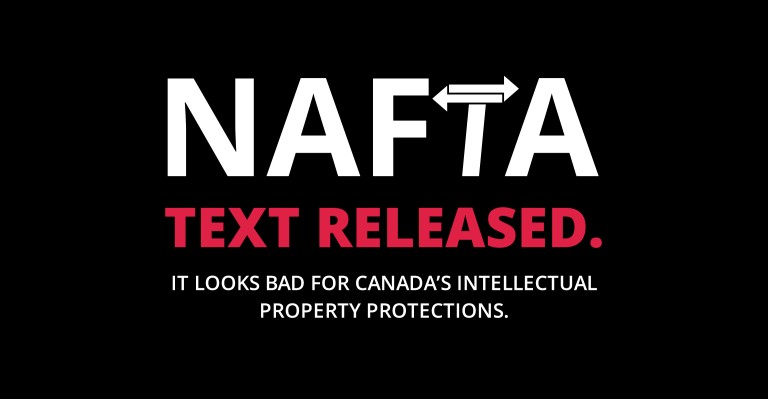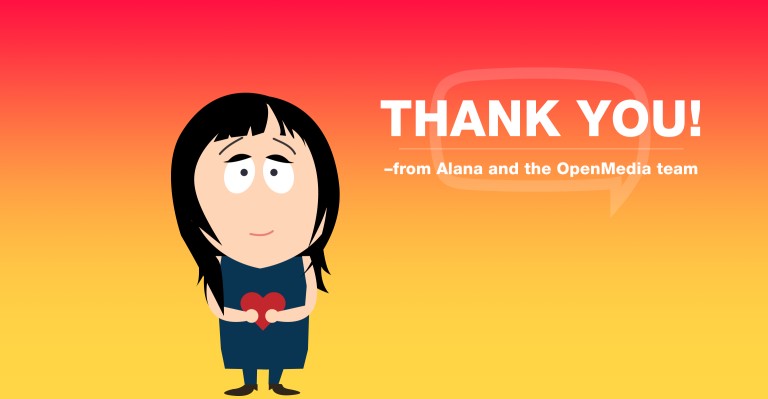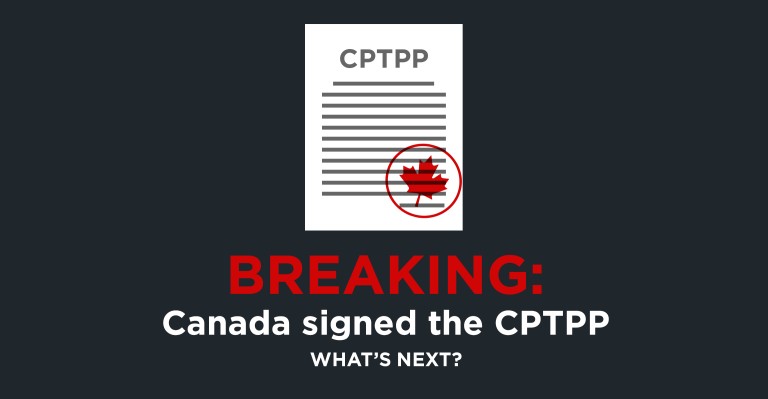Tag: tpp

New NAFTA agreement’s copyright rules will cost Canadians millions
This is a terrible deal for Canadians. These draconian copyright provisions must be rejected.

I was worried. Now, I’m filled with gratitude.
Your support fuels our work and the people who are behind it. Thank you so much!

Over 55,000 voices are on their way to Minister Freeland’s office
This week we delivered over 55,000 signatures calling for the protection of our digital rights in the new NAFTA to Minister of Foreign Affairs Chrystia Freeland — and you bet it’s going to make an impact.

Your voices helped shape the new TPP
Yesterday Canada joined 10 other countries in reaching a deal on a reworked version of the TPP, suspending some Intellectual Property and ISDS (Investor State Dispute Settlement) provisions that would have had detrimental impacts on the open Internet. The work doesn't end here, but this win for the Internet community would have not been possible if it wasn't for you — so thank you for speaking out!
OpenMedia works to keep the Internet open, affordable, and surveillance-free. We create community-driven campaigns to engage, educate, and empower people to safeguard the Internet. Take action now
View all campaigns Take action now!
Take action now!
 Sign up to be in the loop
Sign up to be in the loop
 Donate to support our work
Donate to support our work